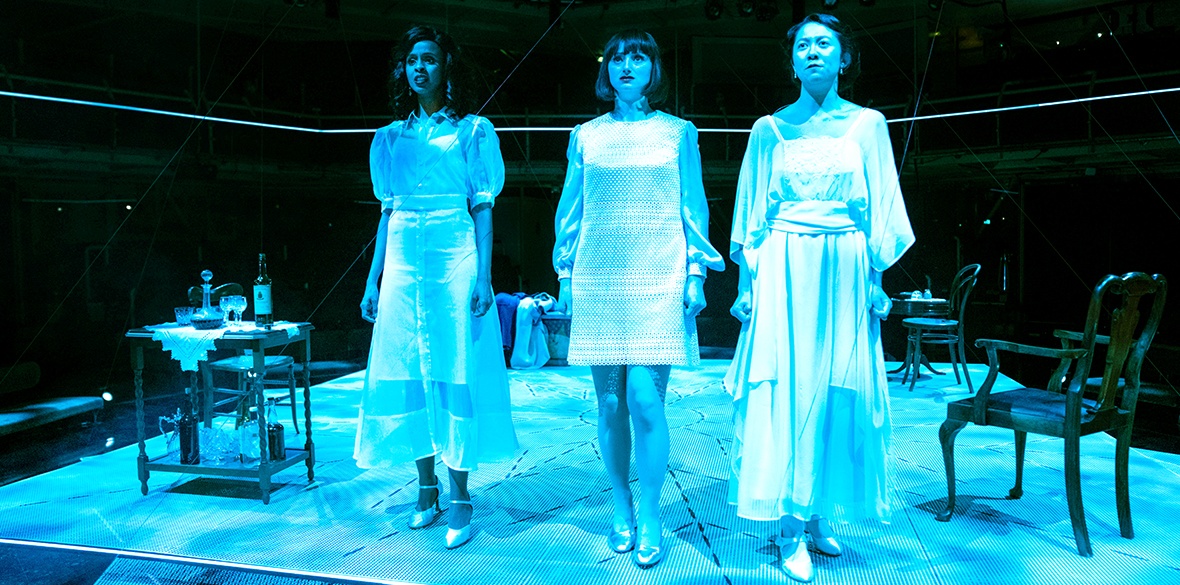This is the last article you can read this month
You can read more article this month
You can read more articles this month
Sorry your limit is up for this month
Reset on:
Please help support the Morning Star by subscribing here
Nora: A Doll’s House
Royal Exchange Manchester
IBSEN’S A Doll’s House is undoubtedly a theatrical masterpiece. Not just for its poetic language and structure but because it endures and remains as fresh and relevant today as it was shocking 150 years ago.
Nora is one of the great female characters of the stage. Her journey from oppression towards a sort of emancipation is a source of inspiration for many women.
Like all masterpieces, the play is ripe for adapting and updating for an ever-changing modern world.
When it was announced that the Royal Exchange was to open its spring season with a reimagining of A Doll’s House with multiple Noras, it seemed bold, brave and exciting.
In Stef Smith’s reworking three actors take on the role of Nora, one set in 1918, one in 1968 and the third in 2018. This makes for an intriguing premise and witnessing Nora’s story unfold over different timeframes is a fascinating idea.
Unfortunately despite the anticipation, it doesn’t play out well. Having three Noras playing simultaneously and interweaving their stories becomes a bit of a confusing mess. The underlying oppression and tension in Ibsen’s original is jettisoned in favour of gimmick.
If the challenge of playing the same character is not enough, the three actors have to grapple with each being Christine as well as Nora. It’s a huge ask and the three give it a good go but unfortunately the play’s structure lets them down.
Ibsen’s portrayal of Nora’s husband is one of a seething, controlling, menacing man. Here, Tom seems in a dizzy spin, having to respond to three wives in different eras. He’s a bit shouty but there is no menace.
In contrast Andrew Sheridan’s Nathan, the bank employee who tries to blackmail Nora, gives us a man overwhelmed with despair, conflicted by the steps he needs to take to save his family. Sheridan understands the importance of controlled emotion in Ibsen’s text.
This was a real opportunity to imagine how Nora’s life may change over three very different periods.
Although sex discrimination is still a curse of the modern age, things have changed since 1879. How different Nora’s life could be at different stages is worth exploring.
In the end, we learn that in 1918 Nora could vote, in 1968 there are references to abortion and the pill, and possibly Nora’s lesbian feelings and in 2018 she can say “fuck.”
Somewhere inside this idea there is a great play. Unfortunately this isn’t it.
Runs until April 2 2022. Box office (0161) 833-9833 or royalexchange.co.uk.









